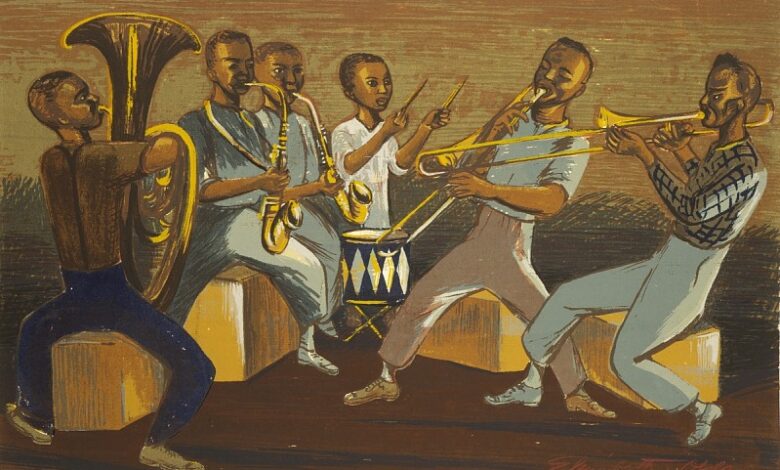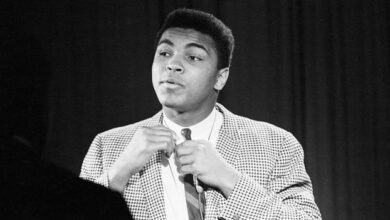Black music: A powerful force in American culture

The strength, beauty and influential power of Black music has been evident since Africans were inhumanely and unjustly captured and brought to the Americas.
Though they were required to give up their languages, customs, and drums, the power of African rhythms remained in the heartbeats of enslaved Africans and their descendants.
“Barred from expressing themselves in their native tongues, enslaved people developed a language to articulate their hopes, dreams, sense of loss, and tenacity to overcome the harrowing nature of their lives. They used music to strategically and creatively voice their most deeply held feelings,” President Joe Biden said in a 2023 White House statement about Black Music Month, which started under President Jimmy Carter in 1979 and is recognized every June.
Black artists’ ingenuity often illustrates the African American narrative of strength and resilience, while giving all audiences tunes to which they can groove.
“Today, the creative ways that Black music tells stories of trial and triumph in American life continue to move us all to understand the common struggles of humanity. Spirituals, gospel, the blues, R&B, rock and roll, jazz, pop, rap, hip-hop, and more have molded American culture and given rise to new American art forms emulated around the globe,” Biden said.
From style trends that root from Black artists and influence worldwide fashion, to sounds and rhythms that have opened perspectives and shifted culture, Black music is more than part of culture– it shapes culture.
For instance, jazz artists, Motown singers and the hip-hop genre as a whole have influenced culture from hairstyles to clothing and slang.
Women donned short bobs and fingerwaves like Josephine Baker. During the Motown era, ladies turned to groups such as The Supremes, gentlemen looked to The Temptations or Marvin Gaye, and young people modeled after The Jackson 5, for style guidance— from suits and dresses, to processed hair, wigs, curls and afros.
Black music has also introduced listeners to the plight of African Americans and served as a rallying cry for all people to join in freedom fights.
Consider the stir Billie Holiday caused from her 1939 song “Strange Fruit,” which shared the sad stories of lynchings in America. While she was prohibited from singing the song and punished for doing so, “Strange Fruit,” served as a form of thought-provoking artivism and remains one of Holiday’s most celebrated tunes.
While Stevie Wonder’s 1980 “Happy Birthday,” is unofficially, officially referred to as “the Black Happy Birthday,” it also was a freedom song, in the quest to recognize the Rev. Dr. Martin Luther King, Jr.’s birthday as a national holiday. While today most people tend to be familiar with the tune, the song serves as a catchy form of artivism in the continued fight for justice for all.
Even shifts in Black music have shaped culture.
Negro spirituals’ influence on blues, gospel’s influence on R&B, and R&B and hip hop’s impact, in turn, on modern gospel, reveals the interconnectedness of African American sounds, and further proves Black music’s contribution to culture. While the church was once reserved for solely “sacred music,” as gospel has expanded, many religious institutions and leaders have incorporated hip hop culture, modern, casual styles and even more open-minded teachings.
Further, Black artists offer entertainment across the nation and world.
Biden noted, in his 2023 Black Music Month statement, that the national commemoration pays “homage to legends of American music, who have composed the soundtrack of American life.”
Moreover, local artists have been some of the many musicians who have shaped culture. From D.C. native Edward Kennedy “Duke” Ellington, who revolutionized the sound of jazz with his compositions during the Harlem Renaissance era; to Marvin Gaye who sang about love as powerfully as he called out crooked policing; to celebrated mezzo-soprano Denyce Graves who fills opera houses, homegrown talent should be particularly highlighted this Black History month.
The nation’s capital has birthed and helped shape some great sounds and musicians.
As the Association for the Study of African American Life and History (ASALH), the creators of Black History Month, examines “African Americans and the Arts,” as its 2024 theme, The Washington Informer is celebrating Black music and musicians, particularly those with D.C. roots.
Michele Fowlin, artistic director of Washington Performing Arts Children of the Gospel reflected on the ASALH theme with a powerful thought about Black art. As someone who has worked decades pouring into local artists, particularly the youth, Fowlin knows the importance of art.
“Art is just mesmerizing, it’s impactful, it’s strengthening it’s healing, it’s all of those things, and it is such a foundational part of American history,” Fowlin told The Informer.
Source link




